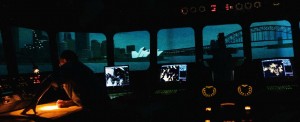Australian Oil and Gas Work pays Highest Salaries
Australia’s oil and gas workers enjoyed the highest average salaries in the industry in 2012 due to a skills shortage, with expatriates pocketing $171,000 a year, a study said on Friday.
Despite uncertain global economic conditions, wages in the oil and gas industry rose globally by 8.5 percent in 2012 to $87,300, according to Hays Oil and Gas Job Search. That follows an average increase of 6.5 percent in 2011.
“There would be few industries with such a track record of growth over the last few years in what has been, in the most part, an uncertain economic environment,” the report said.
World oil production in 2012 grew by 2 percent from the previous year to 89.17 million barrels per day and is expected to increase 1 percent this year, according to the U.S. Energy Information Administration.
Expatriates in Australia topped the list, and Norway came second, according to the survey, conducted among more than 25,000 employees. Among local hires, Australians workers were also the highest earners, with an average wage of $163,600.
“At the top of this year’s table, we once again see Australia and Norway. Both countries have limited skilled labour pools and significant workloads. The result is very high pay rates, although both would appear to have met some sort of ceiling,” the report said.
Australia is preparing to become one of the world’s largest liquefied natural gas (LNG) exporters, with 190 billion Australian dollars ($196.2 billion) worth of projects currently underway, requiring a vast workforce.
The average wage in the United States was significantly lower at $123,800. At the other end of the spectrum were expatriates in Sudan, who according to the survey, earned $59,800 in 2012. Wages tumbled in Iran, whose oil and gas production contracted last year as a result of Western sanctions over its disputed nuclear programme. The average expatriate salary in Iran dropped 27 percent in 2012 to $68,100, while the average for local employees fell 10 percent to $46,900, the study found. “Where imported salaries are concerned, it is once again the frontiers of the industry that are pushing the upper limits of pay. Representing a mix of danger money and hardship allowance in these base salaries, we find Russia’s Arctic exploration driving imported skills, and China’s drive on non-conventional skills also pulling in experts on premium rates,” Hays Oil and Gas Job Search said. The risks involved in some exploration and production regions were laid bare last month in Algeria, where Islamist gunmen attacked a gas plant, which led to the deaths of at least 38 local and foreign workers. Expatriate salaries in Algeria averaged $92,400 last year, according to the survey, which was conducted before the attack. As for areas of expertise, vice presidents and directors of subsea pipeline projects earned the highest average wages at $251,200, up 9 percent from 2011. Graduate salaries increased 12 percent to just under $40,000 in 2012. In an industry counting around 5 million people across the world, 47.4 percent are expatriates, with the remainder employed locally, the report said. ( C) Reuters
For more information and news please see http://www.fxcentre.com/news.asp?3033334
Sign Up to our Newsletter



Connect with NMCIS